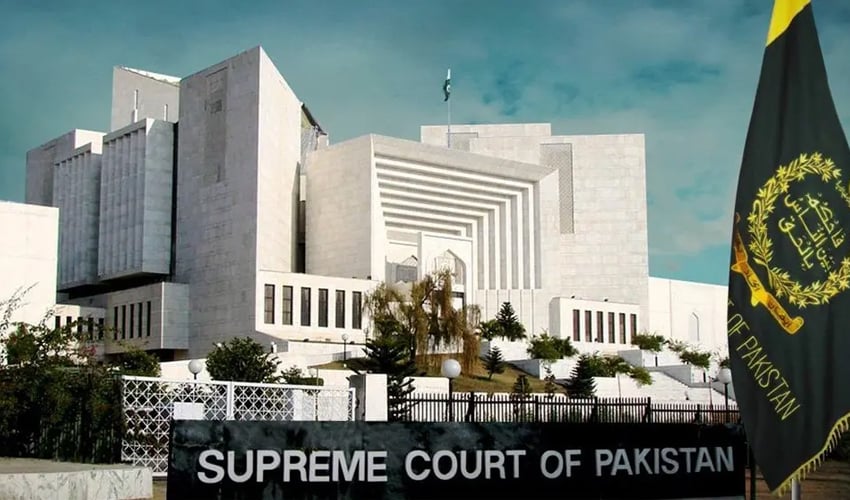Barrister Roman Awan
The constitution is the supreme law of the land. Pakistan is a federal republic and a constitutional democracy. Then, fundamental rights are vital to the cause of any democracy. The federal parliamentary constitution of Pakistan provides citizens with fundamental rights. Article eight of the constitution empowers that fundamental rights are the supreme law, and no law can be enforced repugnant to the canons of fundamental rights. Hence, the fundamental rights protected by articles eight to twenty-eight in the constitution of the Islamic Republic of Pakistan are the supreme law.
Fundamental rights are substantive law. Thus, their enforceability is undeniable. Therefore, administrative and judicial remedies are available for implementing fundamental rights. All citizens across Pakistan, barring religion, race, colour, gender and discrimination, are allowed fair access towards fundamental rights. Article 16 of the constitution enables Pakistan’s citizens to assemble at will, subject to certain restrictions if imposed by the government. Article 16 reads as;
16. Freedom of assembly.- Every citizen shall have the right to assemble peacefully and without arms, subject to any reasonable restrictions imposed by law in the interest of public order.
The article is transparently clear that it is a fundamental right of a citizen to assemble peacefully. However, this freedom is subject to the interest of public order. Then, the interpretation has always been exercised for the executive monopoly. The explanation is straightforward. The substantive part categorically provides to assemble peacefully and without arms. Therefore, the corresponding clause described as “subject to any reasonable restrictions imposed by law in the interest of public order” shall only remain a sub-ordinate clause and can not deter the substantive clause. Hence, the right to assemble is an inalienable right of a citizen. An executive interpretation can not snatch the right. Therefore, it is the right of the women to assemble at will and demonstrate whatever they want according to the law of the land.
Aurat March is a recent expressive phenomenon in Pakistan. It is held on 8th March, as an international day for women. Humans are superior to all other species. Then, both men and women are superior to other creatures. There is no discrimination between the forms of humans. Both men and women are born with specific roles assigned to them. They are similar and dissimilar at the same time. They are complementary to each other. Therefore, they may not be equal to each other. Then, men may perform better in some parts, and women may perform better in other things. So, they may not be similar outrightly. However, as far as rights are concerned, there can be no discrimination. For law, whether you are a man or a woman, you are equal before the law. Hence, it is an inalienable right of a woman to be treated equally, if not preferentially.
The organizers of Aurat March have again announced to hold Aurat March on 8th March 2023 in Lahore. Then, there is nothing unconstitutional in it. It is the constitutional right of the organizers of the Aurat March to hold a procession to celebrate or protest for the causes of women’s rights in their own way. The way of organizing an event is allowed, and it can only be disallowed if it works against the constitution of Pakistan. Yes, one can differ with the orientation of the Aurat March; however, their right to organize and assemble can not be declined. However, the Deputy Commissioner of Lahore turned down their application to hold the event. It is an absurd refusal. No executive competence is available to decline the fundamental right of a citizen of Pakistan. Accordingly, the Aurat March organizers have filed a writ petition to decide the merit of their fundamental right. Article 199 of the constitution of Pakistan provides the judicial remedy to the citizens of Pakistan to enforce their fundamental rights.
However, the question arises as to why the deputy commissioner of Lahore declined the holding of Aurat March. Did she do it out of cultural pressure? Then, it is not a matter of cultural variation but rather the enforcement of a fundamental right. Constitutionally, the substantive part of the fundamental rights is always enforceable by the executive, and the corresponding element is always regulatory to ensure the implementation of the right. It is an administrative excess to deny the substantive part for the cause of the corresponding part. Therefore, there is no way the administration can deny the fundamental rights of the citizens of Pakistan.
What is the public interest? It is commonly referred to the peace, tranquillity, collective will, general will and shared benefits. However, the public interest in Pakistan has been a colonial interpretation. The Britsh exercised it to quell the people’s fundamental rights in India. Then, the most significant question is, who has the monopoly on defining it? It is a problematic area. If the executive is empowered to determine it, then there are no fundamental rights to be ensured. Likewise, the deputy commissioner of Lahore determined it in her refusal letter out of her administrative discretion but at the cost of the fundamental rights of the organizers of the Aurat March. Cultural aspects are always related to cultural issues. Then, one cultural aspect can not be preferred over other. Yes, the constitutional way of life is essential; however, it can not be determined by executive discretion. The executive branch of the government in Pakistan must comprehend the significance of fundamental rights. Moreover, the people in Pakistan must also know the fundamental rights of all the people.
Lastly, there are cultural issues regarding the happening of Aurat March. Then these cultural differences are tagged in almost all cultural, political and other events. Then, it is critical that all events may face the same response from the executive as all are equal before the law. The people may like or dislike the Aurat March. However, it does not mean declining their fundamental right to assemble. The constitution provides it, and the people who may not like the cultural hues of it may boycott it. However, their right to hold Aurat March is undeniable.https://republicpolicy.com/the-importance-of-legislation-for-women-rights-in-pakistan/

















































